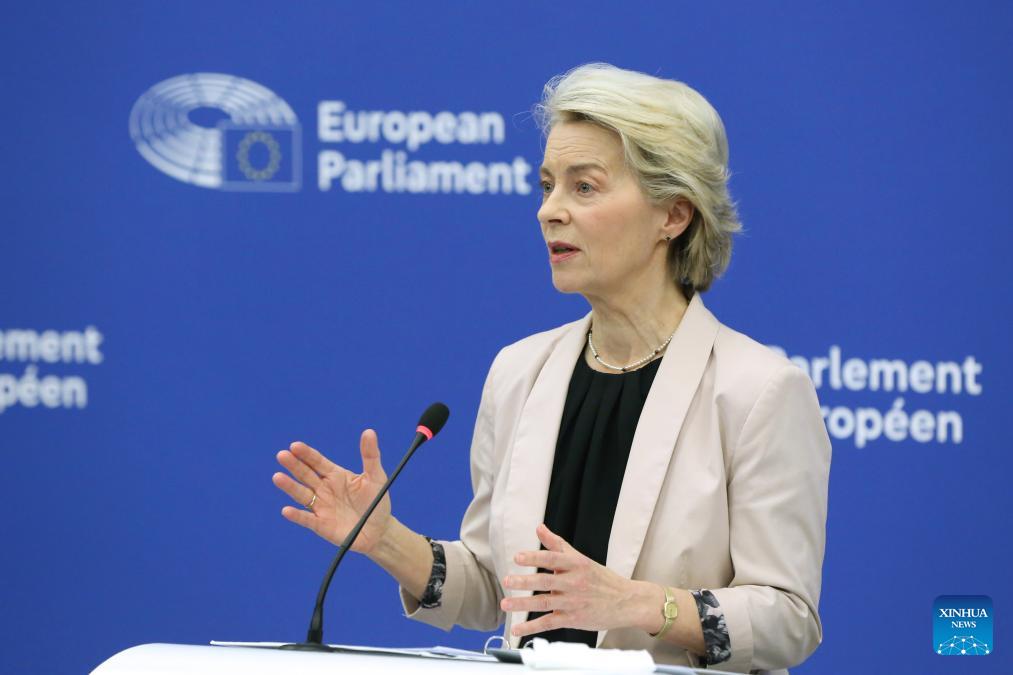
 0 Comment(s)
0 Comment(s) Print
Print E-mail Xinhua, November 28, 2024
E-mail Xinhua, November 28, 2024

European Commission President Ursula von der Leyen attends a press conference after a vote at the headquarters of the European Parliament in Strasbourg, France, Nov. 27, 2024. [Photo/Xinhua]
The European Parliament on Wednesday approved the new team of the European Commission, led by Germany's Ursula von der Leyen, who will serve her second five-year term as president.
Lawmakers voted 370 in favor, 282 against, with 36 abstentions, giving the green light to the 27-member executive team.
Janis Emmanouilidis, deputy chief executive of the European Policy Center, said the new Commission reflects enhanced "presidentialization," with the commissioners largely aligned with von der Leyen. Unlike the previous term, dissenting voices appear absent.
While a strong president offers continuity during challenging times, Emmanouilidis stressed the importance of maintaining a "strong cabinet."
Former Polish lawmaker Jacek Saryusz-Wolski criticized the approval of the new Commission on his social media, calling it "the lowest European Parliament approval in history" and alleging the outcome was driven by "inter-party bargains."
Von der Leyen delivered a speech before the vote on Wednesday. In her speech, von der Leyen unveiled the Competitiveness Compass, marking the first major initiative of the new College of Commissioners. This initiative is grounded in three key pillars: closing the innovation gap, implementing a joint plan for decarbonization and competitiveness, and enhancing security while reducing dependencies, according to von der Leyen.
"We are roughly as good as the U.S. at creating start-ups. But when it comes to scale-ups, we are doing much worse than our competitors," von der Leyen said, underscoring the new Commission's commitment to increasing investment and a sharper strategic focus on innovation.
In terms of decarbonization and competitiveness, "we must and will stay the course on the goals of the European Green Deal," von der Leyen said, vowing to put forward a Clean Industrial Deal within the first 100 days of the mandate.
Von der Leyen also emphasized the critical role of stable and secure supply chains in ensuring economic security.